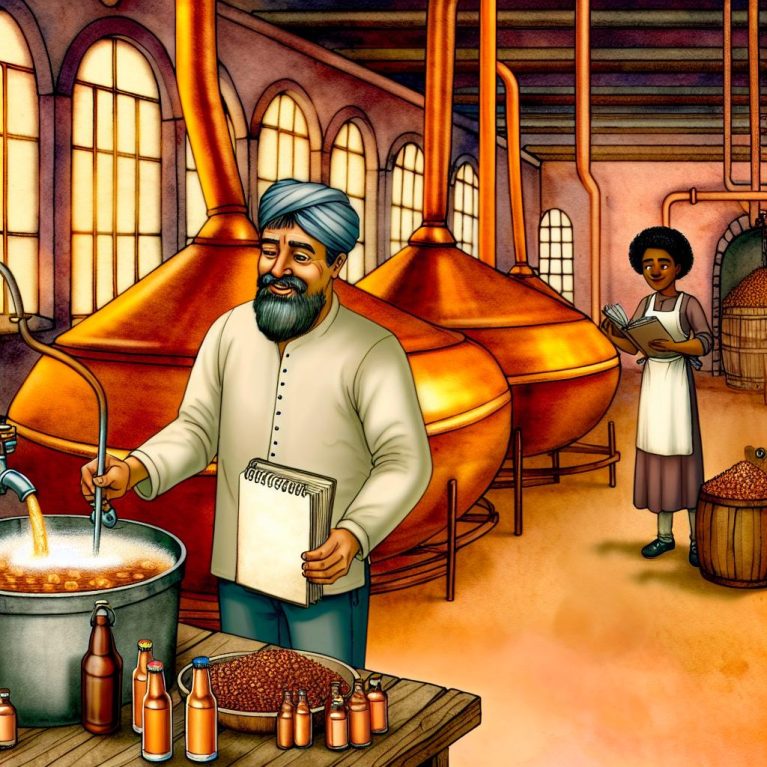The Historical Roots of Belgian Brewing
Belgium’s brewing heritage is one of the richest in the world, dating back to the Middle Ages. During this period, monastic communities were instrumental in both preserving and advancing the complex art of brewing. Monks resided in these monasteries, where they brewed beer not just for sustenance but also as a means to generate income for their communities. The beer made by these early brewers has evolved dramatically over the centuries, yet the foundational techniques developed by these monastics still have an enduring influence on today’s diverse beer offerings.
Traditional Techniques and Ingredients
Belgian brewers are distinctively known for their traditional approaches to beer production, resulting in a product renowned for its complex flavors and diverse styles. One of the standout practices in Belgian brewing is the use of open fermentation vessels. This old-world brewing method allows wild yeasts naturally present in the environment to interact with the beer, contributing distinct and often unpredictable flavor profiles. It is a technique that creates an interaction between the environment and the brewing process, resulting in truly unique beers.
A defining aspect of Belgian beer is its ingredients. Belgian brewers often use a wide variety of specialty grains such as wheat and barley. These grains introduce different tastes and textures to the beer, enriching its flavor profile. Another crucial addition is candi sugar—a specialty sugar used to increase the alcohol content of the beer without heavily adding sweetness. The careful use of these ingredients results in beers that span a wide spectrum of flavors and alcohol levels, meeting various consumer preferences.
Yeast Varieties
A cornerstone of Belgian beer production is the particular yeast strains employed by Belgian brewers. These carefully cultivated yeast varieties are vital in creating the fruity and spicy notes that have become synonymous with Belgian beer. The influence of these strains extends beyond the borders of Belgium; they have inspired craft brewers worldwide to adopt these yeasts to introduce complexity and character to their brews. Brewers often choose specific yeast strains based on the desired flavors and alcohol levels, allowing for customization that echoes the diverse offerings originally found in Belgium.
Spices and Additions
Another exceptional attribute of Belgian brewing is the creative use of spices and other novel ingredients. Historically, Belgian brewers added various botanicals to their beers as a way of balancing and enhancing the drinks’ flavor profiles. Standard additions include coriander, orange peel, and gruit, a traditional blend of herbs. These ingredients are not chosen lightly; each adds a depth of flavor that complements and contrasts with the sweetness or maltiness of the beer. Modern craft brewers continue this tradition, experimenting with these and other spices to carve out a unique niche in the market, often integrating local or seasonal ingredients to offer distinctive flavors.
Influences on Modern Craft Beer
The global craft beer movement, which has gained significant momentum over the past few decades, owes a great deal to Belgian brewing traditions. Brewers seeking to recreate classic Belgian styles—such as Tripels, Saisons, and Lambics—often turn to these time-honored methods. However, beyond mere replication, Belgian traditions also serve as a springboard for innovation in the craft beer scene. The practice of bottle conditioning, where beer undergoes secondary fermentation inside the bottle to achieve natural carbonation, is one such technique borrowed from Belgian brewing. The method of blending different batches to maintain consistency in flavor is another hallmark of Belgian influence, allowing craft brewers to achieve desired flavor profiles while ensuring quality across batches.
Brewers worldwide have successfully introduced their interpretations of these Belgian classics, effectively increasing the diversity of the global beer landscape. The techniques and ingenuity gleaned from Belgian brewing influence countless craft or artisanal beers, fostering a culture of excellence, creativity, and experimentation. Craft brewers, armed with an appreciation of both traditional methods and modern innovations, often find a harmonious, elevated balance in their beer offerings.
In summary, the legacy of Belgian brewing is unmistakably apparent in the contemporary craft beer industry. The techniques, ingredient selections, and flavors that originated in Belgium continue to resonate within the brewing practices found across the globe. For those seeking a deeper understanding of how Belgian techniques impact modern brewing, many educational resources are available through beer academies and craft brewing organizations. These resources offer invaluable insights into the philosophies and methods that continue to drive innovation in beer production today.

